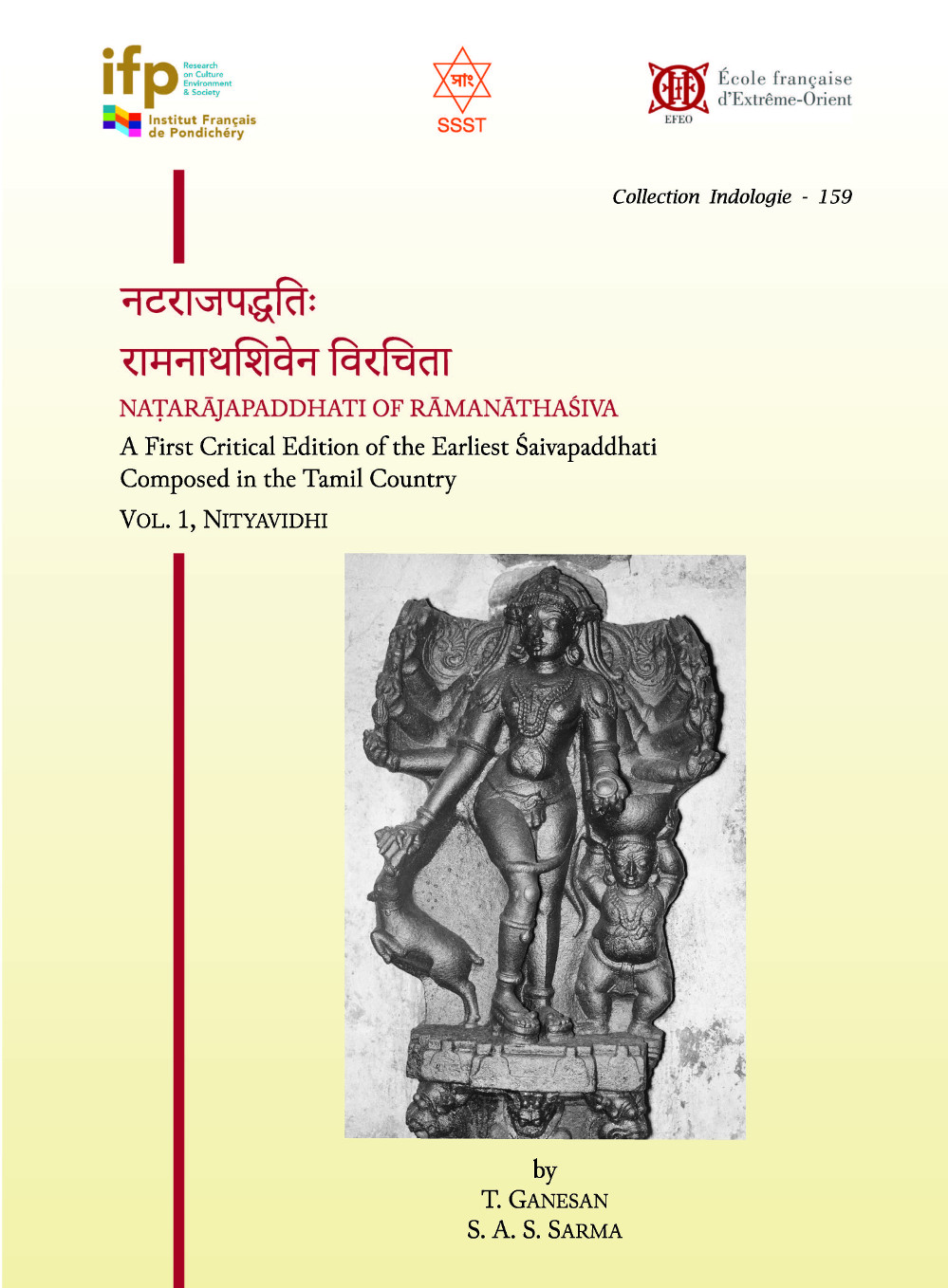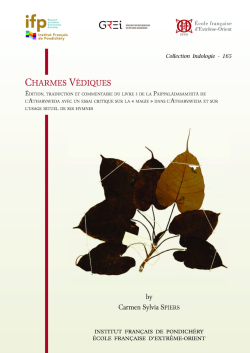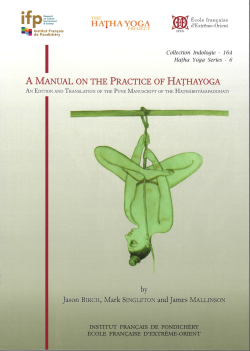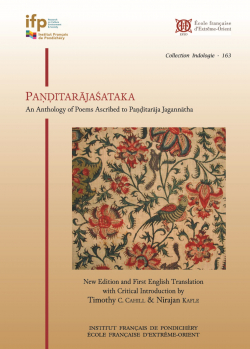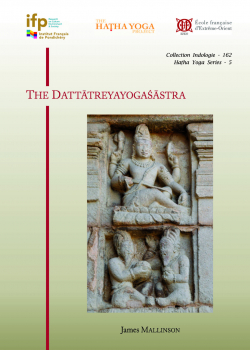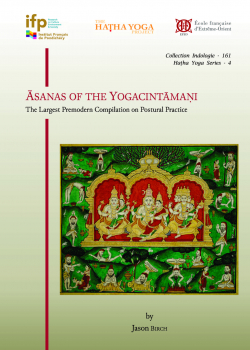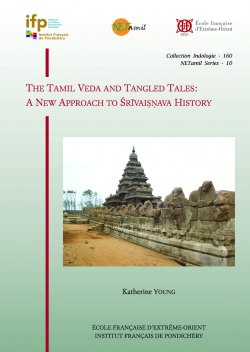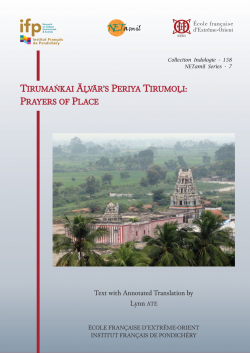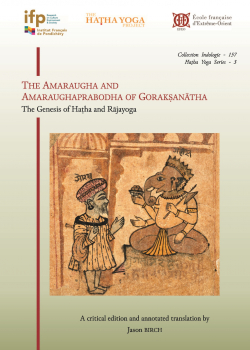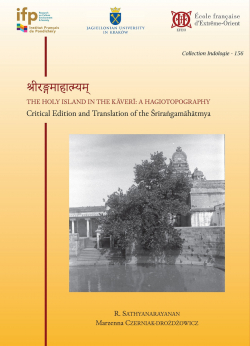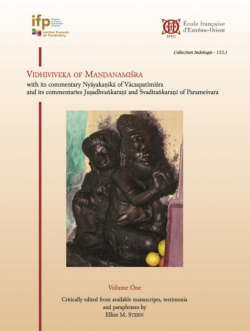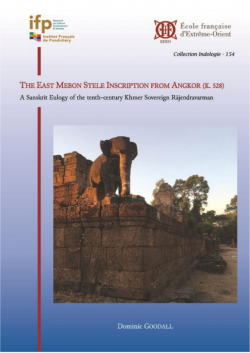The catalog of EFEO Publications includes works on a wide range of disciplines in the humanities and social sciences (archaeology, history, anthropology, literature, philology, etc.), centered on Asia, from India to Japan.
These publications address both specialists, and a wider public interested in Asian civilizations and societies.
Naṭarājapaddhati of Rāmanāthaśiva
A First Critical Edition of the Earliest Śaivapaddhati composed in the Tamil Country. Vol. 1 Nityavidhi
Collection : Collection Indologie
Collection's number: 159
Edition: EFEO - Coéditions, Institut français de Pondichéry (IFP)
Publication date: 2024
Status : Available
20,00 €
ISBN-13 : 9782855392936
ISSN : 0073-8352
Width : 17 cm
Height : 24 cm
Weight : 0.37 kg
Number of pages : 195
Distributor : EFEO Diffusion, EFEO Pondichéry Contact : shanti@efeo-pondicherry.org
Geography : India
Language : English, Sanskrit, Tamil
Place : Pondichéry
Support : Papier
Description :
xix+176 p., English, Sanskrit, Tamil
ISBN EFEO : 9782855392936
ISBN IFP : 9788184702521
Collection Indologie n˚ 159
Abstract
Composed in the middle of the eleventh century CE, the Naṭarājapaddhati is the earliest surviving Śaiva ritual manual (paddhati) known to have been written in the Tamil country. This volume furnishes a critical edition of the first 340 verses of this hitherto unpublished work, which detail the daily obligatory rites of an ācārya who has been initiated (dīkṣita) in the Śaivasiddhānta tradition. It provides precise instructions on the sequence of performing all rites, from waking up in the early morning until bedtime. The author, Rāmanātha, a disciple of a certain Naṭarāja (also known as Naṭeśa), to whom he pays homage and in whose honour the work is named, mentions that he resides in a monastery (maṭha) situated on the eastern side of the temple of Śiva Puṣpavaneśvara, in some unidentified town.
Table of contents
Notes
You can also order this title with our Pondicherry center at the following address:
shanti@efeo-pondicherry.org
Or with the French Institute of Pondicherry at the following address:
library@ifpindia.org
Orders to India must be placed with our center in Pondicherry or the French Institute of Pondicherry.
Related books
Collection Indologie
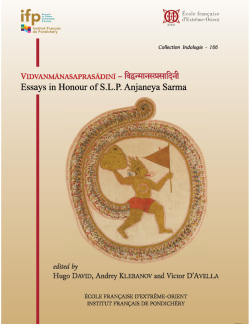
Vidvanmānasaprasādinī
S.A.S. SARMA, Dominic GOODALL, Harunaga ISAACSON, Suganya ANANDAKICHENIN, Hugo DAVID, Kei KATAOKA, Victor D’AVELLA, Giovanni CIOTTI, Andrey KLEBANOV, Émilie AUSSANT, Maria Piera CANDOTTI, Tiziana PONTILLO, Sibylle KOCH, Vincenzo VERGIANI, Timothy C. CAHILL, Somedeva VASUDEVA, Luther OBROCK, M. VINOTH, Maṇi DRĀVIḌA, Akane SAITO, Alex WATSON, Daniele CUNEO, Yūto KAWAMURA
60,00 €
2026
• Available
